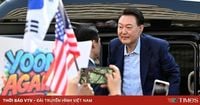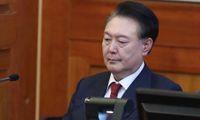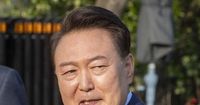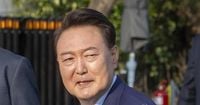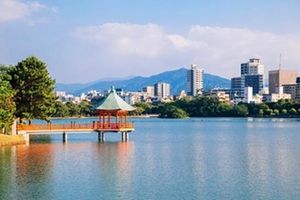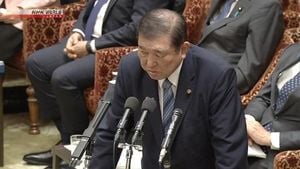Former South Korean President Yoon Suk-yeol is set to face a pivotal moment in his political and personal life as he appears in court on April 14, 2025, to answer charges of rebellion. This hearing, which will take place at the Seoul Central District Court at 10 AM, marks a significant chapter in South Korea's political landscape, as Yoon becomes the fifth former president to stand trial on criminal charges.
Yoon's legal troubles stem from a controversial declaration of martial law he issued on December 3, 2024, during a period of political unrest. His actions were met with widespread condemnation, culminating in his impeachment just ten days before this upcoming trial. The court has taken extensive security measures to ensure safety during the proceedings, allowing Yoon to enter through the underground parking lot to mitigate potential protests outside the courthouse.
According to the court's announcement on April 13, 2025, Yoon will be required to declare his name, date of birth, occupation, and residence at the start of the trial. Following this, prosecutors will present the charges against him, which he is expected to deny. Yoon may also request the opportunity to testify on his own behalf, a right that could play a crucial role in his defense strategy.
If convicted of leading a rebellion, Yoon faces severe penalties, including life imprisonment or even the death penalty. South Korean law is particularly stringent regarding rebellion charges, reflecting the gravity with which such offenses are treated in the nation's legal framework.
Witnesses slated to testify during the trial include Cho Sung-hyun, the commander of Security Team No. 1 of the Capital Defense Command, and Kim Hyung-ki, commander of Special Mission Battalion No. 1 of the Special Operations Command. Their testimonies will likely focus on the orders given during the martial law declaration, including Cho's previous statements that he was directed by then-Commander Lee Jin-woo to forcibly remove legislators from the National Assembly.
This trial comes at a time when public opinion is heavily swayed against Yoon. A recent survey indicated that nearly 80% of South Koreans supported the Constitutional Court's decision to impeach him, viewing his martial law declaration as an overreach of power. The sentiment reflects a broader discontent with his administration's handling of political dissent and governance.
As the trial approaches, the South Korean government is also preparing for the presidential election scheduled for June 3, 2025, to elect Yoon's successor. Under the South Korean Constitution, elections must occur within 60 days of an impeachment, and candidates must register by May 11, 2025. The campaign period is set to begin shortly thereafter, with public officials intending to run required to resign by May 4, 2025.
With the political landscape shifting rapidly, the outcome of Yoon's trial could have significant implications for the future of South Korean politics. Observers are keenly watching how this trial unfolds, as it not only affects Yoon's fate but also sets a precedent for how the law is applied to former leaders in the country.
The court's decision will be closely scrutinized, and the proceedings are expected to draw considerable media attention. However, in a bid to maintain order, the press will not be allowed to take photographs inside the courtroom before the trial begins, reflecting the sensitive nature of the case.
As the trial begins, Yoon Suk-yeol's political career hangs in the balance. His defense strategy and the testimonies of key witnesses could determine whether he is able to reclaim his position in South Korean politics or faces the dire consequences of his actions during his presidency.
In a country that has seen its fair share of political upheaval, this trial serves as a reminder of the complexities and challenges that come with leadership. Yoon's case is not just about one man; it encapsulates the struggles of a nation grappling with its democratic principles and the rule of law.
